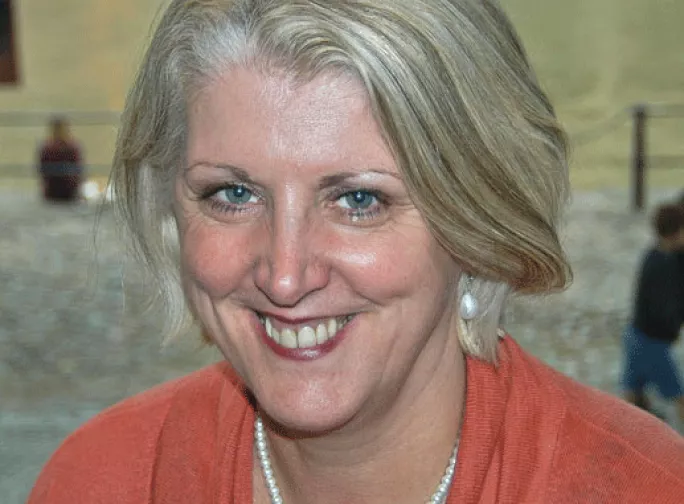‘Graded lesson observation - let’s not throw the baby out with the bathwater’
Dr Lynne Sedgmore, executive director of the 157 Group, writes:
Graded lesson observations have been part of college life for over two decades. Since their introduction they have generated a wide spectrum of views. Many managers have seen them as a means of understanding what was happening in their classrooms and of gauging the quality of teaching. For many lecturers, however, lesson grades have undermined the complexity of learning, proved unreliable when used without sufficient thought and care, and felt threatening when used most stringently.
Recently, the grading debate has been given new prominence by Ofsted’s move not only to drop grades for individual lessons in its own school inspections, but to go further in saying it does not expect the schools themselves to grade their teachers.
Lesson grading, like any system of measurement, is inevitably a blunt instrument, its subtlety being dependent on the way it is used. Yet it did, and still does for some managers and lecturers, continue to offer a systematic way of approaching the quality of classroom experience and student achievement.
Arguably, the grading of teaching moved colleges culturally to a stronger focus on understanding and improving teaching that could only be beneficial. At its best it is used developmentally in the interests of both staff and students; at worst it has been used as an unsophisticated instrument of demotivating and unconstructive criticism.
Whatever your individual view, for many, grading lessons is seen, as it was in the early days, a valuable means to improve achievement rates and student success. It is often assumed that managers obsessed by quality monitoring systems prefer to maintain summative grading but there are, thankfully, few who cling on to the practice as an end in itself or who believe it is even the primary means through which to improve teaching.
On the ground lesson grading is both strongly opposed and strongly supported, by the various and conflicting experiences and anecdotes of those involved.
The view that lesson grading is valuable has now been further called into question, both by Ofstedand an emergence of evidence which doubts its efficacy.
Policy Exchange’s recent report Watching the Watchmen, offers a useful summary. In short, academic studies show that both the reliability and the validity of lesson observation grades are doubtful. Even if independent observers agree on the quality of what they have seen, it is likely they will not be able to accurately identify when they see truly effective teaching.
Similarly, research published by the Sutton Trust called into question the validity of ‘well-trained independent evaluators,’ describing them as the ‘least predictive method of assessing teacher effectiveness.’
More recently, Professor Robert Coe’s well-received report What makes great teaching? highlighted the importance of lesson observations as a means not only of measuring effectiveness, but of improving it. He emphasises the importance of a variety of techniques, including peer observation, valued student feedback and well-trained observers.
Yet crucially, Professor Coe, and othwer who oppose the practice, particularly by Ofsted, recognise the place of observation within the school and college environment as a means to maintain and improve standards. Professor Coe himself notes that the observation process must involve some degree of challenge involving principals or external experts.
While much of the evidence, as well as the recent changes made by Ofsted to their school inspection process, points away from the positives of graded lesson observations, I believe such a stance must not allow the baby to be thrown out with the bathwater. There are research findings which support the reliability and efficacy of lesson observations.
Many colleges have taken a positive and proactive lead on how to best use and develop observations to improve their provision. A large number of 157 Group colleges are already operating either models developed through discussion and development with managers and lecturers. Such a ‘blended’ approach still includes some grading but also looks at other elements of a teacher’s performance and enables them to actively seek a formative observation when they are trying out a new technique or taking risks.
These methods sit more closely with the work of those such as Geoff Petty, or the IfL, which emphasises the importance of maintaining the belief we have in formative methods for our students, for colleagues and for ourselves. Experiments of this kind have led, notably in Chichester and Blackpool, to a real impact and improvement on whole-college performance.
Many managers, and teachers, maintain that there are benefits to maintaining a summative aspect of the observation process, and to some teachers an observation without a grade feels a waste of time. What is certain, as Dr Matt O’Leary’s research for UCU has shown, is that lesson observation remains a contentious and divisive topic.
The sector, in my view, is mature enough to lead and sort the way forward and we must not allow the views of those outside FE, or strong anti-Ofsted voices, to dictate the direction.
There now exists a significant base of well-read and highly-regarded research on the subject. There is both opportunity and interest to hold a genuine, sector-wide discussion over the new role and approach of graded lesson observations in FE. Whatever your own views, my plea is for a powerful, game-changing discourse in which managers and teachers join together to create the best way forward to ensure the best experiences and outcomes for learners. We owe them nothing less.
Keep reading for just £1 per month
You've reached your limit of free articles this month. Subscribe for £1 per month for three months and get:
- Unlimited access to all Tes magazine content
- Exclusive subscriber-only stories
- Award-winning email newsletters




